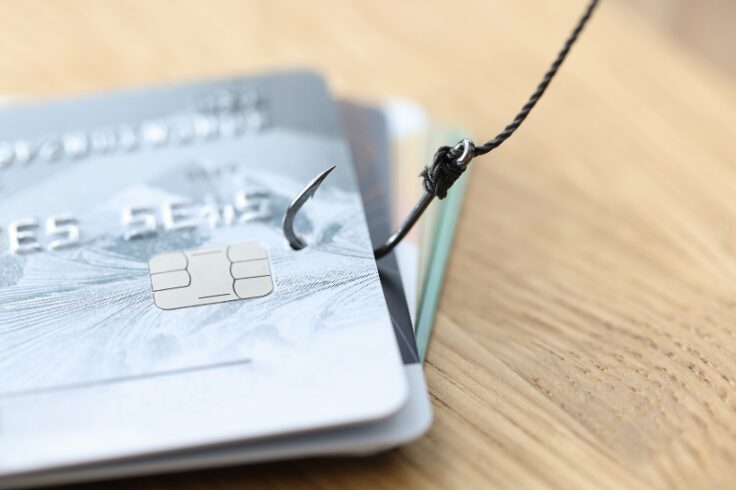Credit Freeze
Here’s What You Need to Know Before You Put That Credit On Ice
| 4 min read
Since the announcement of the Equifax breach, you might have noticed friends and social media posts urging you to order a credit freeze. When hacks occur, the internet world can become a panicky place to be. While a credit freeze might provide the best solution for some, it might not necessarily be best suited for others. Prior to making this decision, you should at least have the most accurate information at your disposal. When you understand the benefits and risks of credit freezing, you can then make an informed choice that’s right for you.
What is a credit freeze?
Putting your credit on ice is a common method to protect yourself against widespread data breaches, such as the recent Equifax situation. The purpose of a credit freeze is to prevent anyone from seeing information related to your credit report. Putting your credit on ice means that neither you nor anyone else will be able to open a new loan under your name, at least while your credit is frozen.
Does a credit freeze cost money?
In most cases, yes. To encourage users to freeze their credit, Equifax is waiving fees on credit freezes for 30 days. But in order to get the most protection, you’ll need to freeze credit from every credit agency (rather than just Equifax). Otherwise, your information will be available through the other credit agencies. Ordering a credit freeze usually costs anywhere from $2 to $10. However, this depends on where you live and the specific credit agency. However, residents of South Carolina or Maine can order a credit freeze free of charge.
Does a credit freeze mean that I can’t use my credit card?
Freezing your credit won’t prevent you from using your credit card. It primarily impacts any new loans or credit cards you wish to open, but there are ways around that too, which we’ll detail in the next section. Your information will also still be released to your current creditors and debt collectors, so credit freezes cannot be used to hide a credit problem.
The consequences of a credit freeze
While hackers won’t be able to see your credit report, neither will financial institutions and other lending agencies. If you want to apply for a new loan or credit card, you will need to unfreeze your credit. You can do this by notifying each credit agency (that has frozen your credit) of your plans to apply for a new loan or credit card before you apply for the new credit. Keep in mind that unfreezing takes time, so don’t wait until the day before you plan to submit your loan or credit card application.
You can unfreeze your credit temporarily and for a specific party, such as a landlord or lender. Plan to pay additional fees each time you decide to freeze and unfreeze your credit, so use it carefully. If you’re continually going back and forth, these fees can add up quickly.
Don’t credit monitoring and fraud alerts already cover me?
Sort of. Credit monitoring and fraud alerts are valuable, but they only catch a fraudulent charge after the fact. Ordering a credit freeze is the most effective way to prevent someone from using your information in the first place. Think of a credit freeze as a flu shot, while credit monitoring and fraud alerts treat the flu once you catch it.
How do I order a credit freeze?
If you’ve decided that freezing your credit makes sense, it’s a fairly simple process. You’ll need to visit the website freeze page of all three major credit agencies: Equifax, TransUnion, and Experian. However, because of the Equifax breach, credit agencies are being deluged with freeze requests. It might take more than one attempt to get through, but you’ll eventually get there with persistence.
Once on the websites’ freeze page, you’ll be asked for your personal information. If you’re uncomfortable providing more personal information online, then you can also order a credit freeze over the phone. Either way, you’ll receive a PIN number to use when you decide to unfreeze your credit. Do not lose this number!
Whether or not you decide to freeze your credit, it’s important to maintain security over sensitive personal information. Having a fraud resolution service in place can also be beneficial. Many financial institutions offer this service either for free or for a nominal fee. As we’ve seen from the events surrounding the Equifax breach, hackers are becoming more sophisticated with their methods. Being blasé about your personal information only makes their job that much easier.
This foregoing is provided by Vantage West Credit Union (“VWCU”) as general information only, and VWCU assumes no responsibility, and does not guaranty the accuracy, relevance, timeliness or completeness of such general information. Please note that any [links/references] to other websites (such as Equifax, Transunion and Experian) are for convenience only and VWCU is not responsible for the content or privacy practices of those websites. Please check all privacy statements on those websites before providing any personal information. Vantage West Credit Union shall not be liable for any damages (or any nature whatsoever) arising out of or in connection with the information contained in the foregoing. If you need additional information, please obtain advice from your tax professional or attorney.







